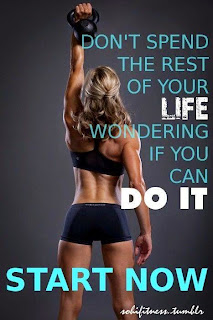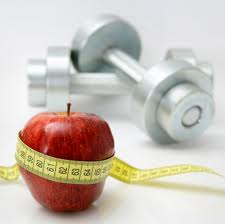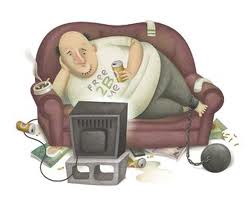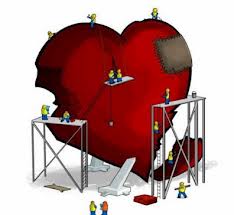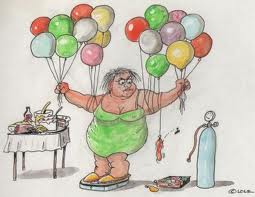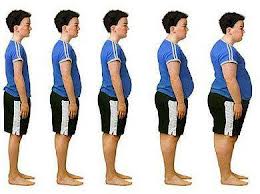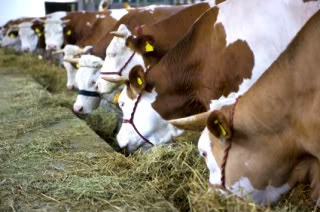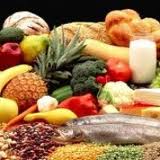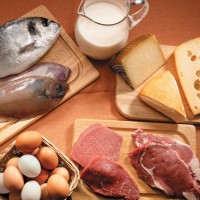10 Psychological Hurdles keeping you from
Losing Weight
(and How to Overcome Them)
A few weeks back, I discussed nine (more) reasons you might not be losing the weight you want, and I got a lot of responses. Those were mostly “physical” reasons grounded in physiological terms we usually use to describe weight loss or gain. In other words, they were the ones you expect, things like eating too little and tanking the metabolism, suffering from “hidden stress,” disordered eating, or training too hard with inadequate nutrition. Today, I’m doing something a bit different. Instead of couching everything in the body, I’m focusing more on the ways in which our minds (which, of course, are part of the body, but we typically separate the two in common parlance) trip us up and prevent us from losing weight.
Let’s jump into it.
-You’ve Developed Poor Habits
Habits become ingrained in our days and in our brains to the point where it just doesn’t feel right without them. Now, if your habits take the form of regular exercise, eating plants and animals, and getting good sleep, you’re in good shape. If your habits look a little different, you might not be:
The coffee and crueller (stat!) on the way to work. The handful of candy beans every time you pass the candy-loving receptionist’s desk. The nightly six pack. The propensity to plop down on the couch and stay there for hours after work. We’ve all got some bad habits, and depending on their composition, they can disrupt our ability to lose weight.
It’s easy to recognize our bad habits, but it’s tough to break the cycle using sheer willpower. Instead, try to understand the underlying contexts that give rise to the habits. That way, you can target the contexts – the situations, the emotions, the cues – that trigger the habit.
It could be as simple as taking a different route to the bathroom to avoid the receptionist’s candy-laden desk, or it could be as hard as examining why you feel the need to drink six beers at night.
You can also replace the bad habit with a good one. If you’re craving that morning pastry, eating a piece of sweet fruit instead might be easier than just going without altogether.
I recommend The Power of Habit for those looking to learn more about habits, how to break bad ones and create new ones.
-You’re Afraid of Being a Social Pariah
We are social animals. In fact, acknowledgement and indulgence of that fact is crucial for maintaining and supporting personal health. It’s the rare person who can live without social contact with other humans and remain happy and healthy. That innate drive to be accepted by and avoid offending those around us, however, can also keep us from making the right dietary choices when those around us are constantly bringing cookies into the office, going out to eat at the Chinese buffet, ordering wings and fries at happy hour, and so on.
There’s no easy way to relish social pariahism, although I think a healthy dose of it leads to superior health (more for being independent/your own man/woman than for any dietary advantages it confers). You can’t just decide to be happy about being the weird person who turns down the birthday cake. You can, however, decide to be the weird person who turns it down. Sometimes there’s no easy way around the hurdle, no strategic path. Sometimes you just have to bull your way through it and bear the consequences. Like running hurdles on the track, scaling this particular psychological hurdle gets easier the more you do it. Turn down the cake a few times and you’ll realize that it’s not so bad after all and people really don’t care.
Just don’t make a big deal out of it when you say no. Don’t get indignant or lecture-y.
-You Still Fear Fat
Years of indoctrination from mass media, your family, doctors, “experts,” and pretty much everyone can have you convinced that fat is a scary, inherently dangerous macronutrient – even if you can intellectually accept its place in the human diet. No matter how many studies you read exonerating dietary fat as the cause of heart disease and obesity and diabetes and how many success stories you hear from people who ate fat to lose fat, there may always be a voice deep down inside saying “you know that stuff will kill you, right?” Even though you know it’s not anything to worry about and a high-fat diet actually can be incredibly healthy, the animal instinct is strong and stubborn. And yet if you don’t shake that fear of fat even as you reduce your carbohydrates, you’ll end up on a low-carb, low-fat, overall low energy diet that won’t get you anywhere but stuck and stalled.
It’s tough to shake indoctrination, but it can be done. Read GCBC, at least the first half that deals with the diet-heart hypothesis to have your fear ripped asunder to be replaced with a strong yearning for butter. Read the success stories on this very site from people who ate lots of fat and lost weight, improved their blood markers, and lowered their risk of developing heart disease. Taken together, clinical research and personal anecdote combine to form a powerful de-conditioning agent.
-You Eat for Comfort
Comfort eating has an initial utility, I’ll admit. If you’re stressed out and can’t handle the situation, eating something that comforts you and lowers stress can be helpful, regardless of the nutritional composition of the food in question. However, if that becomes a habit, if you find yourself eating fried chicken and waffles four nights a week in order to make yourself feel better, your weight loss will almost assuredly halt – or reverse itself altogether, leading to an entirely different kind of “feeling bad.”
The problem is the stress, not the food. If you just keep switching up the food without addressing the root cause, you’ll never truly break through. You need to figure out what’s stressing you out and then take steps to reduce or mitigate it. If that means taking specific steps, like avoiding a particularly caustic personality in your life or switching jobs at the first available opportunity, so be it. It might also require taking a more general approach to stress reduction, like daily meditation, a morning walk, or some time in nature. Better yet, take both specific and general steps.
-You’re Stuck on What Worked at First Even Though It’s Not Working Anymore
The initial weight loss is a rush. It comes so quickly and so effortlessly (for many people) that people often assume that doing whatever caused that first big burst of change will work in perpetuity. They become wedded to the initial method, even as it stops working. People tend to do that – to identify strongly with a belief or a group, especially if it’s generally worked very well for them. This identification often persists even when it stops working, or stops working quite so smoothly. It’s “normal” human behavior, but it can still be counterproductive or even destructive.
Maybe early on you didn’t have to think about caloric content, but now you should consider it.
Maybe early on you didn’t have to exercise much beyond walking, but now you could really benefit from more.
Maybe early on you didn’t have to worry about anything but diet, but now you should explore the other important aspects of Primal life.
-You Think “Why Even Bother?”
Stalling is hard, especially if it persists for months on end. But stalling is completely normal. Weight loss (as mentioned above) is easiest when you have the most to lose. Dropping 100 pounds off of 300 in a year isn’t too tough and happens all the time, while dropping the last twenty when you’re sitting at 200 is considerably tougher and often takes a lot longer. This can be incredibly discouraging, especially if you’re “used” to losing weight faster.
The solution? Don’t give up. Don’t throw in the towel. Focus on all the other benefits you’ve accrued. Enjoy the improved and steadier energy throughout the day. Cherish the newfound appreciation and capacity for outdoor activities. Rub your skeptical friends’ faces in your blood test results (not the actual blood, but rather the numbers). If you do these things and keep on keepin’ on, the weight loss will come. But it will never come if you give up.
-You’re Embarrassed to Go to the Gym
Ah, the gym: hall of mirrors, impossibly ripped testosterbros, models, and high standards, all of whom are prepared to gaze disapprovingly in your specific direction. Or so some people assume. In reality, the gym is full of people trying to lose some weight, build some muscle, and gnash their teeth in pleasurewrath at the latest episode of Hannity on Fox as they walk the treadmill. And most of them are just as self-conscious as you.
Embarrassment is another hurdle that can’t be surmounted by tricks. You just gotta go for it. Before you know it, you’ll either be too fit and strong to worry, or you’ll have stopped caring. That said, there are a few strategies to ease your embarrassment:
Consider a trainer. A trainer will help you perform the lifts with confidence and grace so that you don’t think you look funny (even though you don’t and no one cares anyway).
Get a plan. Don’t just go in and start doing strange things with the dumbbells. Follow a legitimate program like Starting Strength (barbells), Convict Conditioning (bodyweight), Overcoming Gravity (gymnastics), or Raising the Bar (bar calisthenics). Primal Blueprint Fitness is another (free) option.
Go during off hours. You can get your workouts in relative solitude.
Work out elsewhere. Who needs the gym? Not everyone. Go for hikes, lift your own bodyweight, build a home gym, buy a few kettlebells and a sandbag and make a slosh tube or two, play sports. You don’t need the gym to work out and lose weight.
Besides, those big guys with tank tops that show ample man nipple? They’re more concerned with staring at themselves than anyone else – as should you.
-You Think in Black and White/All or Nothing
A while ago, I warned you guys against making the perfect the enemy of the good: bailing out because you can’t get grass-fed/organic/pastured/wild/perfect everything. That advice still stands, especially the more wrapped up you get in all this Primal stuff, and yet I hear about it a lot.
You’ve read all about the benefits of grass-fed beef, so you won’t touch anything that ate a grain and end up unable to afford this diet.
You can’t find a farmers market near you and have no room to grow your own veggies, so rather than buy conventional produce from the supermarket, you avoid plants altogether.
You eat a bite or two of nigiri (with the rice) along with some shrimp tempura and freak out on yourself, going on a three day water fast to cleanse the impurities and end up derailing the entire ship, tanking your metabolism, and triggering a weeklong binge.
The vast majority of the millions of unique visitors Mark’s Daily Apple gets every month aren’t buying exclusively grass-fed beef and pastured chicken, shunning every green vegetable if it isn’t organic and hand delivered by the farmer, and making zero mistakes or concessions. And yet somehow they keep coming back. Somehow we keep getting success stories. Somehow people are getting massive benefits from adopting a less than perfect Primal lifestyle. Realize this, and the black and white thinking should dissipate.
-You’re Depressed
Depression is often linked to weight gain, and the two appear to be mutually reinforcing. Whether you overeat because you’re depressed and want to cope with the depression or are depressed because you’re overeating, the connection between the two is undeniable.
It could be a very mechanistic thing, too. Although depression is typically imagined and conceived of as purely a psychological matter (“of the mind”), it’s also of the body. In a post from last year, Dr. Emily Deans explained how depression can lead to increased cortisol, circulating levels of inflammatory cytokines (throughout the body and the brain), impaired glucose tolerance, and accumulation of visceral fat. Resistin, a hormone that increases insulin resistance and diabetes, also increases during depression. Depression has long been linked to type 2 diabetes, too.
Unfortunately, there’s no easy fix for depression. Antidepressants may help in some situations, but even the relationships between antidepressants themselves and weight gain/loss are unclear (and vary depending on which medication you’re using and how long you’re using it). A generally healthy Primal lifestyle full of good food, smart activity, social contact, nature exposure, and all the other trappings I discuss can’t hurt, of course. Don’t let it fester or “tough it out,” whatever you do. Get help from someone who knows what they’re doing, whether they’ve got an MD after their name or not. You may not know exactly how to scale this particular hurdle yet, but at least you can identify and begin to assay it.
-You’re Constantly Comparing Yourself to Others
As animals subject to competitive pressures, we have the tendency to constantly compare ourselves to other members of the species. We’re sizing each other up, trying to see what’s working and what isn’t for the other guy, either to gauge our ability to beat them in a had to head match up or to learn from their successes and failures. An animal that wonders about its own existence also has the ability to wonder about how they stack up against other animals. It’s a feature and a shortcoming all at once.
As for how this can become a psychological hurdle impeding weight loss, there can be a couple reasons. I’ve seen people rushing from dietary change to dietary change based on other people’s experiences without pausing to consider whether those modifications make sense for their situation. There’s nothing wrong with drawing on another person’s experience or advice to apply it to your own, but you have to stay abreast of the results. You have to give it a chance to work – or to not work.
There’s also the fact that when you look at someone else who’s seemingly got it all together, you’re only looking at their outward projections. If you could gain access to their inner workings, you’d likely find yourself tramping around in puddles of self doubt, self consciousness, and self criticism, just like we all deal with from day to day.
¡Hasta la próxima!

